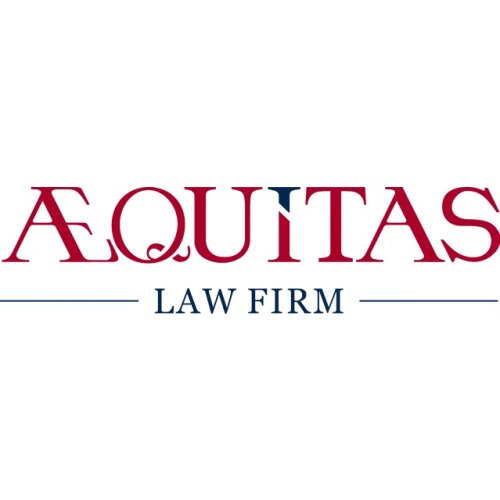Best Employment Rights Lawyers in Kazakhstan
Share your needs with us, get contacted by law firms.
Free. Takes 2 min.
Or refine your search by selecting a city:
List of the best lawyers in Kazakhstan
About Employment Rights Law in Kazakhstan
Employment rights in Kazakhstan are governed by the Labor Code, which establishes the legal framework for employment relationships and sets out the rights and responsibilities of both employers and employees. The law covers aspects such as employment contracts, working hours, wages, occupational safety, and the resolution of labor disputes. The Labor Code aims to ensure fair treatment of employees, promote stable labor relations, and protect the rights and interests of both parties involved in the employment relationship.
Why You May Need a Lawyer
There are several common situations where you might require legal assistance regarding employment rights in Kazakhstan:
- Unfair Dismissal: If you believe you have been unjustly terminated, a lawyer can help you understand your rights and explore your options for recourse.
- Contractual Disputes: Discrepancies or misunderstandings concerning employment contracts often require legal interpretation and negotiation.
- Discrimination or Harassment: If you encounter workplace discrimination or harassment, a lawyer can assist you in filing a complaint and pursuing legal action if necessary.
- Wage and Hour Issues: Lawyers can help resolve disputes over unpaid wages, overtime, and other compensation-related issues.
- Health and Safety Concerns: If your workplace does not meet safety standards, a legal professional can guide you on reporting and addressing these issues.
Local Laws Overview
Understanding local laws is crucial for navigating employment rights in Kazakhstan. Key aspects include:
- Employment Contracts: All employment relationships should be documented with a written contract that clearly states the terms and conditions.
- Working Hours and Overtime: Standard working hours are limited to 40 hours per week. Overtime is regulated and compensated, often requiring special consideration for night work or hazardous conditions.
- Minimum Wage: The government sets a minimum wage that all employers must adhere to, ensuring basic compensation standards.
- Termination and Severance: The Labor Code outlines grounds and procedures for terminating employment, including mandatory notice periods and severance pay.
- Health and Safety: Employers are obligated to provide safe working conditions and comply with occupational health standards.
Frequently Asked Questions
1. What are my rights if I am unfairly dismissed?
If you are unfairly dismissed, you may have the right to challenge the dismissal through the courts or labor dispute commissions, with possible remedies including reinstatement or compensation.
2. How is overtime compensation calculated?
Overtime work is compensated at a higher rate than regular hours, typically at 1.5 times the normal wage, according to Kazakhstani law.
3. What should be included in an employment contract?
An employment contract should include job duties, salary, working hours, terms for termination, and any other relevant conditions of employment.
4. Can my employer change my job duties without my consent?
Significant changes to job duties usually require mutual consent and may necessitate an amendment to the employment contract.
5. What is the procedure for filing a complaint about workplace discrimination?
Complaints can be filed with your employer, labor inspectors, or through legal channels, and it may be beneficial to seek legal advice for guidance on the process.
6. Am I entitled to annual leave?
Yes, employees are entitled to a minimum of 24 calendar days of paid annual leave, with additional days for hazardous work or by special agreements.
7. How is the minimum wage in Kazakhstan determined?
The minimum wage is set annually by the government, and it applies to all employees across the country to ensure a basic standard of living.
8. What are the legal working hours per week?
The standard legal working hours are 40 hours per week, with certain exceptions for specific types of employment or agreements.
9. How are disputes over unpaid wages resolved?
Disputes can be resolved through negotiation, mediation, or by filing a claim with the labor dispute commission or the court system.
10. What resources are available for resolving employment rights disputes?
Various governmental bodies and legal professionals can provide resources and guidance, including labor inspectors and employment rights lawyers.
Additional Resources
Below are some resources and organizations that can be useful when seeking legal advice about employment rights in Kazakhstan:
- Ministry of Labor and Social Protection of the Population: Provides guidance and oversight on employment laws and standards.
- Labor Dispute Commissions: Bodies that specialize in resolving labor-related disputes outside the court system.
- Union Representation: Many industries have unions that can provide support and advice on employment rights issues.
- Legal Aid Centers: Offer free or low-cost legal assistance for individuals facing employment-related issues.
Next Steps
If you need legal assistance in employment rights, consider taking the following steps:
- Document Everything: Keep detailed records of employment contracts, communications, and any incidents or disputes.
- Consult a Lawyer: Reach out to a legal professional specializing in employment law to discuss your situation and receive tailored advice.
- Contact Relevant Authorities: Report serious violations to appropriate governmental bodies or labor inspectors.
- Consider Mediation: Engage in mediation services to resolve disputes amicably outside the court system if possible.
- Prepare for Legal Proceedings: If necessary, gather evidence and prepare to present your case through formal legal channels.
Lawzana helps you find the best lawyers and law firms in Kazakhstan through a curated and pre-screened list of qualified legal professionals. Our platform offers rankings and detailed profiles of attorneys and law firms, allowing you to compare based on practice areas, including Employment Rights, experience, and client feedback.
Each profile includes a description of the firm's areas of practice, client reviews, team members and partners, year of establishment, spoken languages, office locations, contact information, social media presence, and any published articles or resources. Most firms on our platform speak English and are experienced in both local and international legal matters.
Get a quote from top-rated law firms in Kazakhstan — quickly, securely, and without unnecessary hassle.
Disclaimer:
The information provided on this page is for general informational purposes only and does not constitute legal advice. While we strive to ensure the accuracy and relevance of the content, legal information may change over time, and interpretations of the law can vary. You should always consult with a qualified legal professional for advice specific to your situation.
We disclaim all liability for actions taken or not taken based on the content of this page. If you believe any information is incorrect or outdated, please contact us, and we will review and update it where appropriate.
Browse employment rights law firms by city in Kazakhstan
Refine your search by selecting a city.










